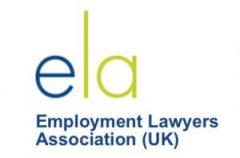With the introduction of “no fault” divorce and the government’s online portal, it is now easier than ever for couples to start the divorce process themselves online, however you may be wondering if no-fault divorce affects financial settlements.
Whilst the online portal has made the commencement of no-fault divorce proceedings easier, solicitors are still required when it comes to formally sorting out financial matters. Financial settlements are somewhat separate from the divorce proceedings (listen to our podcast about the importance of financial orders here) and can be dealt with in a number of ways, the most common are as follows:-
- The husband and wife reach an agreement between themselves;
- The husband and wife attend mediation and reach an agreement which is then reflected in a document called a Memorandum of Understanding;
- The husband and wife exchange voluntary financial disclosure and then enter into solicitor-led negotiations via correspondence or a round table meeting;
- One spouse issues financial remedy proceedings with the Court
- Save for when Court proceedings are issued (when the result is a Financial Order from the Court) the intention is an agreement will be reached between the parties that will then be drawn up into a Consent Order, which is drafted by a solicitor. The Consent Order is then submitted to the Court and once approved becomes legally binding. If you do not have a Consent Order in place then you leave yourself open to financial claims from your ex-spouse in relation to income, capital and pensions both now and in the future.
A divorce is a difficult time for all those involved and issues relating to shared assets and ongoing financial arrangements are probably one of the most complex aspects of any relationship breakdown.
When a marriage ends it is sensible for the couple to formally resolve, once and for all, the outstanding financial matters between them. In England and Wales, even after a divorce is complete, unless and until a spouse remarries, they can still bring a financial claim against their former spouse, potentially many years after the divorce has been finalised, unless a financial settlement has been reached, and enshrined in an order of the Court.
Where matters are agreed, this will be dealt with as a paper (or online) process, and no one need attend Court. It will give each party the security and certainty of knowing that any financial agreement reached will be binding and enforceable after the divorce.
There are many issues to consider when separating finances on divorce and matters that make matters more complicated include:
- one or both spouses owns a business
- one spouse is financially dependent on the other
- one spouse does not agree to the divorce
- there are dependent children
- one spouse has an issue which effects their ability to earn an income
- there is a disparity in assets e.g. one spouse has more property in their name or a larger pension pot
- there are complex assets, potentially outside of the UK, or which are subject to third party interests
- there is concern over one spouse dissipating or concealing assets/ their income
How we can help
The Family & Divorce team at THP Solicitors have extensive experience in dealing with the financial consequences of divorce, can help you with the protection and distribution of jointly owned assets, and adopt a realistic approach to achieve a speedy and cost-effective resolution of financial issues.
For a confidential discussion about the no-fault divorce procedure and financial settlements, please contact Richard Rodway in our Henley office or Julia Drury in our Reading office, both of whom will be happy to have an initial conversation with you over the phone/ video about the best divorce route for you.









